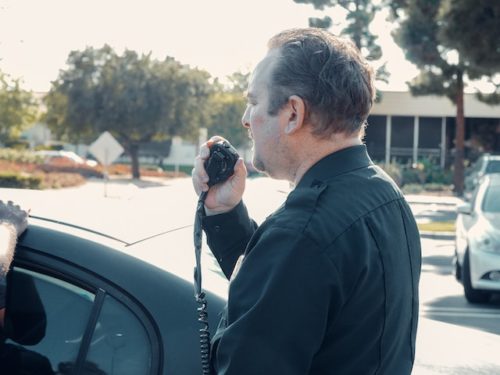
Many states will set up police checkpoints where all vehicles must stop so the officer can inquire about whether or not the driver has been drinking. This method is an effort to deter drunk drivers. Whether you were drinking or not, ensuring you know what your rights are at a sobriety checkpoint is crucial. If arrested under suspicion of DWI, you’ll want to contact one of our Houston DWI defense attorneys for quality representation.
What Is a Sobriety Checkpoint?
Sobriety checkpoints are a location where police set up roadblocks for drivers to pull over and answer questions. All drivers submit to these stops so long as they pass through the area where the roadblock is set up.
When stopped, the police will ask for your license and registration and will ask whether or not you’ve been drinking. Regardless of your answer, the officer will be looking for signs of intoxication, such as bloodshot eyes, slurred speech, the smell of alcohol, or bottles in the car. If the officer suspects you’ve been drinking, they will have you pull further off to the side to conduct a breathalyzer or field sobriety test.
Are Sobriety Checkpoints Legal in Texas?
In Texas, sobriety checkpoints are not legal. The state courts determined these stops unconstitutional as they violate the fourth amendment. This is because the court decided that these stops don’t warrant lawful searches.
This means that any information or evidence collected after an unlawful stop cannot be used against you. Instead, Texas enacts what’s known as “no-refusal weekends.” These are weekends when police can stop drivers on suspicion of drunk driving and request blood samples. If a driver refuses, they will call a judge who will sign a warrant allowing them to draw blood.
However, sobriety checkpoints are technically legal on Padre Island, which isn’t Texas land but instead federal territory. This means it is legal for the Island to conduct sobriety checkpoints for all visitors.
If I’m Arrested for a DWI, What Should I Do?
When pulled over and arrested for driving while intoxicated, you’ll need to take a few steps to protect yourself from further incrimination. Whether or not you are guilty, complying with the officer’s orders is essential as failure to comply can make the situation worse. Do not try to flee or resist arrest. Instead, exercise the right to remain silent. You must provide information like your name and license, but you do not have to offer any more information.
If arrested at what you believe to be a sobriety checkpoint in Texas, you need to contact an experienced DWI lawyer as soon as possible. This could be a violation of your constitutional rights. The Gonzalez Law Group is ready to represent you in a court of law. Reach out today to schedule a free consultation with one of our seasoned attorneys.



